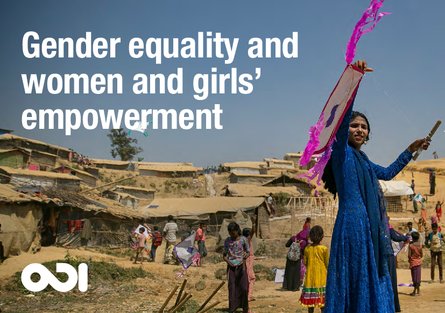
Progress towards gender equality is being made across the world, but it is hugely variable, hard to advance at pace and, in places, is in retreat. Gender inequality continues to harm millions worldwide; discriminatory gendered norms prevail and resistance to progress is common. Women and girls still lack control over economic, social and political resources. Stark disparities between women remain, influenced by intersecting social identities such as gender, age, disability, ethnicity and class.
- While more women are in work, this has not been matched by better employment conditions or equal pay.
- Unpaid care and domestic work restrict women’s economic and personal well-being.
- Violence against women and girls is alarmingly prevalent.
- Disparities in educational attainment persist.
- Maternal mortality rates in some regions are unacceptably high.
- Women’s presence in decision-making – from formal political participation to decision-making roles in the private sector, public bureaucracies and the home – is limited.
ODI provides independent research, analysis and advice to inform policies and practices that advance gender justice across the world. Our interdisciplinary approach allows us to engage with the complexities of change and offer politically smart and contextually relevant analysis and advice.